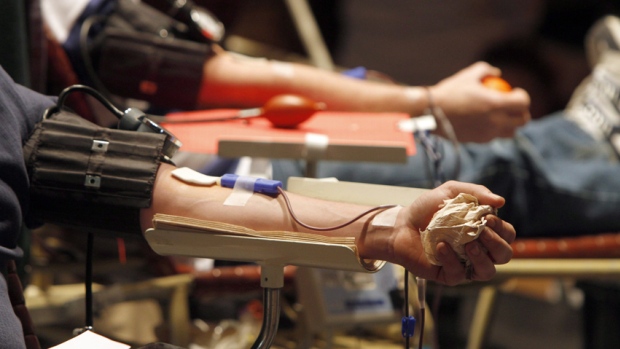Wanna make a difference? Try bleeding.
November 22, 2017
Donating blood can be one of the scariest things for most people. And many people end up viewing organizations like Life Source and the American Red Cross as vampires just there to suck up your blood. And when I donated blood last Thursday it definitely felt like a vampire was just sucking all of the blood out of me. But here’s the the thing about donating blood: that one pint that comes out of your body could be enough to save three people. According to BNL Blood Drive, one out of every 10 people entering a hospital need blood in order to survive.
The main questionproblem that occurs with many people ask that donate blood is:, “How will I survive if I donate that much blood?” Well, according to an article done by Wonderpolis in honor of the American Heart Association, scientists estimate that there are approximately 4.7 to 5.5 Liters of blood running throughout our body. Now, this amount varies withfrom sex, age, overall health, and ever where a person livesmight live. Which is why according to the American Red Cross, donor guidelines are set to being at least 17 years old and over 110 pounds, along with being healthy, of course.
Now a lot of people also people end up fainting when donating blood.it comes to these blood drives and it has nothing to do with their fear of needles or blood. The main reason that people faint is due to either having a low blood sugar or being dehydrated. In fact, I myself almost fainted donating blood last Thursday as well. Now I would like to note that I am 21 years old., However, I’m a rather short female. Standing at about five feet and weighing only 126 pounds, I really don’t have anything more than 4.5 liters of blood running through me.
Now, many people end up getting their blood sugar checked along with their iron levels to make sure that they are well. Now normal blood sugar levels are usually taken when you haven’t eaten anything. According to Diabetes Self Management, normal blood sugar levels on an empty stomach should be somewhere between 70 – 99 mg/dL. While normal Iron level ranges for females are 12.5 – 17.2, and male levels can rocket up to 19.2. I was OK with my iron., But after an hour after of eating, my blood sugar levels were only at 94, which really isn’t that good. They also make sure your blood pressure, temperature and pulse are normal. With myself, having a low blood pressure and pulse can be a bad thing., because after a pint of blood they drop even below what the normal should be.
So the question becomes, how does one stop from fainting? Well, for me, when I started to go when, it was basically the minute they took the needle out of my vein. I had given a pint of blood, and all of a sudden I felt extreme nausea, and I needed to throw up. The problem was, my niece was sitting right there afraid I would pass out, and I had scared the crap out of her. According to her statement, my eyes had rolled back, and I looked like I was about to pass out. That was when the nurse dropped by, asked how I was, leaned my chair back and put ice packs on the back of my head and collar bone. Alongside that I was also given water and goldfish crackers to snack on, to make sure I was well hydrated.
Luckily, that did the trick, and I didn’t entirely faint, butwhile it did feel like I blacked out for a bit. The important thing to remember when donating blood is that one must stay hydrated and not forget to eat. It’s important to make sure that you have enough nutrition, preferably some protein. While it can be scary to donate blood, and the risks are there, it is important to remember that not only do you have licensed professionals there to help you, but also the fact that your donation helps save lives. It’s a simple fact of making a difference one pint at a time.




















